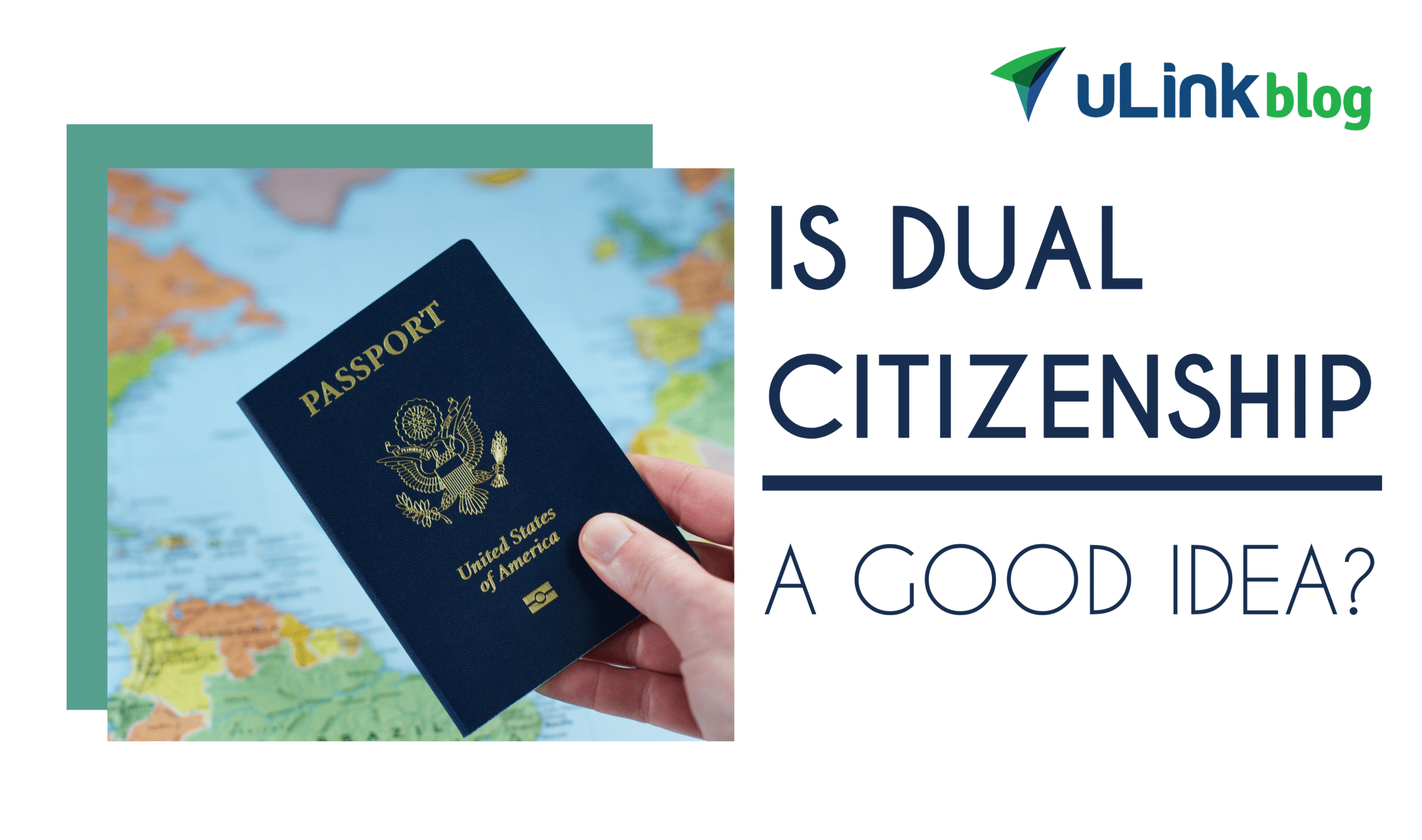Dual citizenship affords the freedom and flexibility to live where and how you want.
But is it a good idea?
To help you answer the question, we’ll provide a brief overview of dual citizenship and the six core benefits it can provide.
Does America allow dual citizenship?
Yes. America unequivocally allows and endorses dual citizenship.
According to the U.S. Supreme Court, Americans can “have and exercise rights of nationality in two countries.”
Better yet, U.S. law does not require new citizens to choose one nationality or relinquish citizenship in their country of origin.
In other words, you can have the best of both worlds.
Note: Before you apply for U.S. citizenship, contact your home country to make sure they also allow dual citizenship.
Some nations, like Singapore, Nepal, Indonesia, and China, expressly forbid dual citizenship.
How does dual citizenship work?
There are many ways to become a dual citizen.
In some situations, dual citizenship is granted automatically.
For example, if a child is born in the United States to immigrants from a foreign country, the child automatically becomes a citizen of both nations.
Dual citizenship can also be granted when a foreign national marries a U.S. citizen.
Of course, dual citizenship can also be the byproduct of naturalization and the process of becoming a citizen of the United States.
What are the benefits of dual citizenship?
While having two passports is great, dual citizenship offers far more.
In fact, there are six foundational benefits dual citizenship can provide:
Increased Optionality
The rising tide of international conflict and global health crises directly increases the value of dual citizenship.
Why? In a word, dual citizenship enhances optionality. It affords the opportunity to follow your dreams, wherever they take you.
Such ambitions might entail pursuing new economic opportunities, escaping political oppression, or simply upgrading your surroundings.
Having optionality is powerful. It gives you the quiet confidence to know you’re not “stuck” in one place, and that you can decisively adapt to the times with total freedom.
After all, you’ll always be just one plane ticket away from your second home.
Access to Social Services
Most countries offer a spectrum of federal benefits and privileges for their citizenry.
By being a dual citizen, however, you’ll be able to vote in both countries and even run for office (except for the U.S. Presidency, which is held exclusively by natural-born citizens).
While enjoying two distinct social services systems, you’ll also be able to work in both countries without worrying about a work permit or visa.
P.S. Nothing beats community. Beyond participating in both social services systems, dual citizenship will also empower you to immerse yourself in both cultures in profound and unexpected ways.
Educational Savings
American colleges are expensive and have outpaced the rate of inflation by nearly five times over the last 50 years.
As a result, scholarship and financial aid — i.e. “free money” — has become truly essential to help make ends meet.
Unfortunately, international students rarely receive the scholarship aid they need.
By becoming a dual citizen, however, you and your family will gain access to a spectrum of financial aid resources, grants, and scholarships.
Note: Not interested in American schools? No problem. As a dual citizen, you and your children can still attend colleges and universities in your home country.
Cost Savings
Between application fees and renewal costs, green cards can be very expensive.
In fact, the upfront fee for a family-based green card for applicants living in the U.S. is $1,760. For applicants living outside the U.S., it’s slightly less at $1,200. These figures do not include medical examination costs, which typically cost around $129.
While it costs another $540 to renew your green card every decade, you’ll eliminate these recurring costs by becoming a dual citizen. To complete the N-400 Application for Naturalization, you’ll simply pay a one-time fee of $725.
It’s not cheap, but it will certainly save money in the long run.
Employment Opportunity
As a dual citizen, you’ll enjoy two essential economic benefits:
- In the short term, you’ll gain immediate access to new business and employment opportunities (across both the public and private sectors).
- In the long term, you’ll increase your total income.
According to a study by the Migration Policy Institute, U.S. citizens can earn between 50-70 percent more than noncitizens.
Money answers everything. The only question is: what will you do with the extra income?
Property Ownership
As a dual citizen, you won’t merely be able to visit two countries. In most cases, you’ll be able to own property in both nations.
If you frequently travel, this will obviously deliver tremendous convenience.
More importantly, if you rent out either of your properties, it will also provide a wonderful tool to generate passive income.
Moving Forward
While dual citizenship can be overwhelming, its benefits are clear:
- It increases your optionality and ease of travel
- It provides access to multiple social services systems
- It enhances your higher education savings
- It reduces recurring expenses on green cards
- It strengthens economic opportunities
- It secures your property ownership
At uLink, we’ll be here to help you support your loved ones — whether they’re near or far.
With the uLink Money Transfer app, you can skip the long wait times and hidden fees and send money home fast. Thanks to our global network, you can send money to over 143,000 locations in 63 countries. And with our great exchange rates and fees starting as low as $0, you can send more money home than ever before.
Miles from home — just moments away with uLink.
